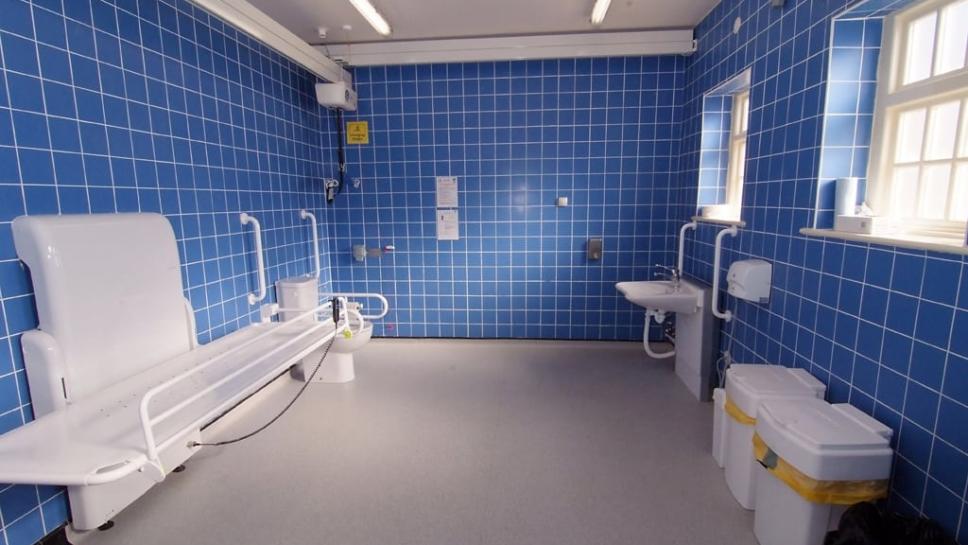
The UK’s capital is the worst-performing region when it comes to providing fully-accessible toilets known as Changing Places, which are essential for more than 250,000 people across the country with severe disabilities.
Muscular Dystrophy UK’s figures show there are 80 Changing Places toilets in London, which has a population of 8.8 million. This means there are just 0.9 facilities per 100,000 people – without even taking into account the 30 million annual visitors to the capital. In comparison, Scotland tops the list with 3.6 Changing Places toilets per 100,000 people.
The research, released to mark Changing Places Awareness Day today, highlights a varied picture across the UK. Northern Ireland has an average of 1.4 toilets per 100,000 people, followed by 1.7 in the South East. Meanwhile, the West Midlands, Yorkshire and the Humber, and the Channel Islands have three apiece.
The geographical spread of Changing Places toilets is also a problem in some places, particularly Devon, Cornwall, Mid-Wales and Norfolk. Some areas are more than 20 miles away from a Changing Places toilet, which is why Muscular Dystrophy UK is also calling for at least one facility in every town.
Clare Lucas, Head of Policy and Campaigns at Muscular Dystrophy UK, said:
Everyone deserves to use the toilet safely and with dignity, but more than a quarter of a million disabled people are being excluded from society because there aren’t enough Changing Places. Without enough of these vital facilities, people are being forced to cut trips short, stay at home, or even consider options as extreme as surgery. Going to the toilet is a basic human right, but too many disabled people are being denied this. Activities that many of us take for granted, like going to work or shopping, prove difficult because there just aren’t enough facilities. This is leaving disabled people isolated, and that’s not acceptable.
Muscular Dystrophy UK’s research also shows:
- 14 out of 2,563 railway stations and 49 out of 5,497 visitor attractions – both fewer than one per cent – have a Changing Places toilet
- Thirty of the UK’s 46 airports don’t have a Changing Places toilet
- Just 18 pubs, restaurants and cafes across the UK have a Changing Places toilet
While the figures paint a disappointing picture, there have been a number of encouraging developments over the past 12 months. In May, the Government launched a consultation on making Changing Places toilets mandatory in new, large public buildings following years of campaigning by the Changing Places Consortium, which Muscular Dystrophy UK co-chairs. This consultation ends on Sunday 21 July.
In addition, the Department for Transport is providing £2 million funding to install Changing Places toilets at motorway service stations in England. And a partnership with supermarket giant Tesco has resulted in a rollout of 35 facilities at stores across the country.
Clare added:
It has been an eventful year for the Changing Places campaign, and we’re really pleased that progress is being made. But we now need to ensure we keep that momentum going. We’ll be working with the government to ensure the legislation that’s so urgently needed moves along as quickly as possible.
Carrie Aimes, 30, from Worcestershire, has the condition Ullrich congenital muscular dystrophy. Carrie, who had a catheter surgically fitted because of a lack of Changing Places toilets, said:
Not having access to Changing Places facilities takes away your independence. It made planning days out so complicated. In the past, I either wouldn’t go out, or I’d dehydrate myself. I was so desperate to avoid the indignity of struggling to transfer from my wheelchair whenever I needed to go to the toilet, I was prepared to do anything.
- To find out more about Changing Places, visit www.changing-places.org

